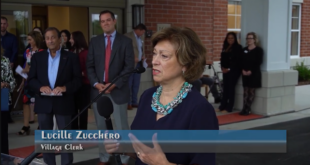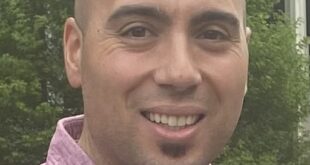
With gratitude, grit and generosity, Walter S. Arnold is on a mission to save an Italian cemetery’s incredible, endangered works.
To see Michelangelo’s sculptures of the Unfinished Slaves — a 16th-century project meant for the tomb of Pope Julius II, but abandoned when the money ran out — is to behold figures clenched in an eternal, tortured struggle to break loose from the marble that encases them. They bear mute testimony to what the artist once said, that he worked to liberate forms imprisoned in marble: that his job was simply to remove the extraneous. And many sculptures must be born a second time, breaking through the ravages of decades of neglect.
Enter Walter S. Arnold, an American sculptor, trained in the ways of Italian masters, who is on a personal mission to bring back the art of the Monumental Cemetery of Staglieno in Genoa.
A young Arnold fell under the spell of Staglieno as he learned to carve in Italy. The funereal sculptures that dominate this 19th-century hillside memorial garden are stunners, dazzling the likes of Ernest Hemingway; Mark Twain, who praised Staglieno in “Innocents Abroad”; and Friedrich Nietzsche, who strolled the grounds frequently for inspiration in the 1880s. It is the largest open-air museum in Europe and likely holds the finest collection of mid-19th to early 20th-century Italian marble sculpture in the world.
Staglieno could have serve as the final resting place for the remains of these magnificent works of art, but for the fact that Arnold has spearheaded an effort to clean and save some of the cemetery’s most compelling monuments. Before and after photos of one monument depict not so much a restoration as a resurrection: A trinity of gleaming angels in stone attend to a deceased woman, all of them finally able to cast off their ashen shrouds.
Lou&A spoke with Arnold about his mission to bring the Staglieno monuments back to their original splendor.
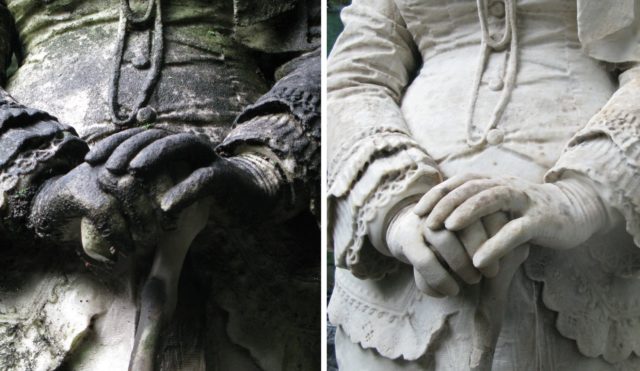
Lou&A: Given your lineage, how do you explain your lifelong captivation with Italian carving?
Walter Arnold: I have one great-grandparent who might be Italian, but we don’t know for sure. I’m Russian Jewish on both sides, and I grew up on the South Side of Chicago. But I’ve been to Italy more than 80 times, and one of the finest compliments I ever received was from a carver in Italy who said to me, “You’re not an American — you’re one of us.”
L&A: You were fortunate enough to sense your calling during your childhood. Tell us how the stage was set.
WSA: I grew up surrounded by old architecture and craftsmanship, and was fascinated with that work. My parents regularly took me to the Art Institute, and very early on stone carving clicked for me. People said it was a lost art but I was determined to learn to carve, and looked all over for people out of the old tradition who could teach me.
L&A: You went to Italy at age 20 to learn sculpture and not long after, you discovered Staglieno. Tell us about that.
WSA: The Italians told me that if I wanted to see what was really possible with carving, I needed to go to Genoa, to visit Staglieno Cemetery. The carvers that I knew in nearby Pietrasanta were the grandsons, sons and nephews of the generation that did the great work at Staglieno. I owe my career to them.
L&A: When you set up your studio in Chicago, your connections to Staglieno only deepened. Why?
WSA: From my first visits back to Italy, I kept going back to Staglieno to see the incredible sculptures. I introduced my wife to them and she encouraged me to write my book, “Staglieno: The Art of the Marble Carver,” to help people see them as a marble carver does. Much of the responses to the book focused on the sorry condition of the works of art there. I kept wondering, “Why doesn’t anyone do anything about it?”
L&A: How bad did it get?
WSA: The works have suffered greatly from the ravages of time, humidity and pollution. Mildew, moss and lichen grow on the marble, breaking it down, and foundations settle and sink, undermining the monuments. The dirt also obscures the design of these sculptures, making it very difficult to read the dramatic beauty of these works.
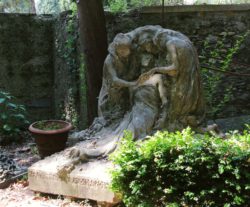
L&A: And that’s where you came in.
WSA: Discussing this with my wife, we realized I was in a unique position. I have the passion for this work and owe a debt to the carvers who created it. In 2010, we formed American Friends of Italian Monumental Sculpture, a 501(c)3 organization dedicated to helping the city of Genoa preserve and promote these masterpieces. So now I live in both worlds, Italy and America, so I can work with the Italians on restoration and with Americans on fundraising.
L&A: What’s your role more specifically?
WSA: I’m not doing the actual restoration work. I work closely with the City of Genoa and the Soprintendenza di Belle Arte, the government agency responsible for all the art treasures in Italy. My experience as a sculptor and stone carver enables me to understand the importance and requirements of restoration, and to select from the best art restorers in the Ligurian region. To date, we have provided work to nine different restoration firms.
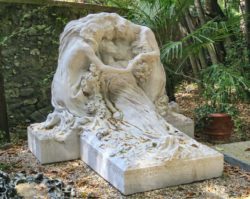
L&A: How much progress has been made thus far?
WSA: We’ve completed restoration of 14 major works of art, with another underway. However, Staglieno houses thousands of incredible sculptures. It is so huge that it has an internal bus service. This is just a drop in the bucket, but it is also a significant start.
Individual restorations cost between $6,000 and $25,000, depending on the size, complexity and condition of the work. This includes long-term maintenance. Naming opportunities are available for full sponsorship, but any size donation helps significantly.
L&A: You’ve also inspired the people of Genoa as well.
WSA: In the past two years, the city has woken up to what they have, and has gotten local support for several restorations. They have also started giving guided tours and instituted audio tours, and have begun repairing the physical structures that house these works of art as well as doing improvements around the cemetery to make it more appealing to visitors.
L&A: Why Staglieno? What is it about this place that resonates so much with you?
WSA: To me, it’s the finest collection of mid-19th- to mid-20th-century sculpture in the world — thousands and thousands of pieces. I’ve been there about 30 times and the work is just jaw dropping. Every time, I go there I see something new. But the sculptures are at a critical point. They’re deteriorating before our very eyes. This is a unique opportunity to save these irreplaceable cultural treasures for future generations. Italy has given so much to us; this is a way that we can give back.
To make a donation to save the statues of Staglieno, visit afims.org. To learn more about the sculpture and stone carving of Walter S. Arnold, visit stonecarver.com.
The above appeared in the May issue of the print version of Fra Noi. Our gorgeous, monthly magazine contains a veritable feast of news and views, profiles and features, entertainment and culture. To subscribe, click here.
 Fra Noi Embrace Your Inner Italian
Fra Noi Embrace Your Inner Italian


